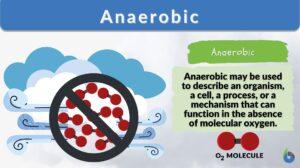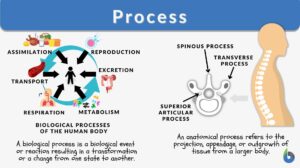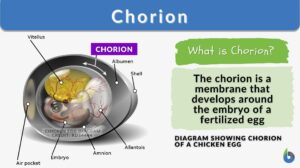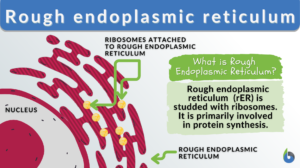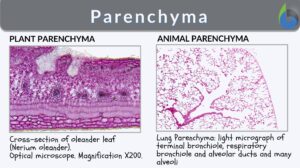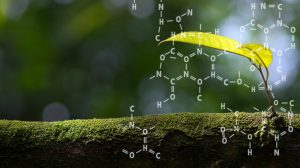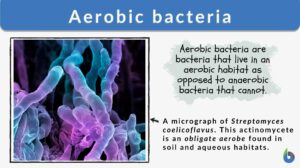Search Results for: respiratory metabolism
Respiratory metabolism
respiratory metabolism The exchange of respiratory gases in the lungs, oxidation of foodstuffs in the tissues, and... Read More
Metabolic pathway
Definition noun A series of chemical reactions catalyzed by enzymes and are connected by their intermediates, i.e. the... Read More
Endoplasmic reticulum
Endoplasmic Reticulum Definition The endoplasmic reticulum is a membrane-bound organelle in cells of eukaryotic cells... Read More
Glycolysis
What is Glycolysis and Why is it Important? Glycolysis is a metabolic pathway by which the 6-carbon molecule of glucose is... Read More
Actions of Caffeine in the Brain with Special Reference to Factors That Contribute to Its Widespread Use
IV. Actions of Caffeine on Brain Functions and Behavior Having discussed the molecular and neuronal actions of caffeine,... Read More
Erythrocyte
Erythrocyte Definition Erythrocytes (red blood cells or RBCs) are the myeloid series of specialized cells that play an... Read More
Muscular system
Muscular System Definition What is the muscular system? The muscular system is a system that includes muscle cells and... Read More
Krebs cycle
Krebs cycle, also known as the citric acid cycle or tricarboxylic acid (TCA) cycle, is a fundamental metabolic pathway that... Read More
Mitochondrion
Mitochondrion Definition What are mitochondria? The term “mitochondrion” comes from the two words of the Greek... Read More
Circulation
Blood Blood is composed of a liquid, plasma, and blood cells such as erythrocytes (red blood cells,) leukocytes (white... Read More
Facultative anaerobe
Facultative Anaerobe Definition What does facultative anaerobe mean? Facultative organisms are the most adaptable... Read More
Protein Activity and Cellular Metabolism
Protein Binding Sites The ability of various molecules and ions to bind to specific sites on the protein surface forms the... Read More
Regulation of Organic Metabolism, Growth and Energy Balance
Organic Metabolism Events of Absorptive and Post-absorptive States. The absorptive state is the period during which... Read More
An introduction to Homeostasis
Researched and Written by Jonjo Minns Submitted to biologyonline.com on February 25, 2009. Published in biologyonline.com... Read More
Alimentary canal
Definition of Alimentary canal What is the alimentary canal? The alimentary canal is a muscular hollow continuous tubular... Read More
Rough endoplasmic reticulum
Rough Endoplasmic Reticulum Definition The rough endoplasmic reticulum (rough ER or rER) is a membrane-bound organelle... Read More
Parenchyma
Parenchyma Definition What does parenchyma mean? Let's define the word "parenchyma". Most of the functional tissues in... Read More
Cellular respiration
Cellular Respiration Definition What is cellular respiration in simple terms? Cellular respiration can be defined simply as... Read More
Human milk oligosaccharide
Definition noun plural: human milk oligosaccharides An oligosaccharide that occurs in high concentrations and exclusively... Read More
Effect of Chemicals on Growth & Development in Organisms
Plants Plants require a large number of elements to function properly, mainly carbon, oxygen, and hydrogen, essentially... Read More
Fundamentals of Anatomy & Physiology (7th Ed) by F.H. Martini
Fundamentals of Anatomy & Physiology (7th Edition) ... Read More
Eubacteria
Eubacteria are prokaryotic microorganisms consisting of a single cell lacking a nucleus and containing DNA is a single... Read More
Eukaryotic cells
Eukaryotic Cells Definition What is a eukaryotic cell? Eukaryotic cells refer to the cells of (or derived from) eukaryotes,... Read More
Aerobic bacteria
Aerobic Bacteria Definition What does aerobic mean in biology? As the name suggests, 'aerobe' in biology means organisms... Read More
Anaerobic respiration
Anaerobic Respiration Definition What is anaerobic respiration? Anaerobic (cellular) respiration is a respiratory process... Read More
Micrococcus luteus
Definition noun A gram-positive aerobic harmless bacterium involved in the conversion of nitrate to... Read More
Simple squamous epithelium
Simple Squamous Epithelium Definition Simple squamous epithelium, also known as simple squamous epithelial tissue or... Read More
Neural Control Mechanisms
Nerve cells called neurons generate electric signals that pass from one end of the cell to another and release chemical... Read More

